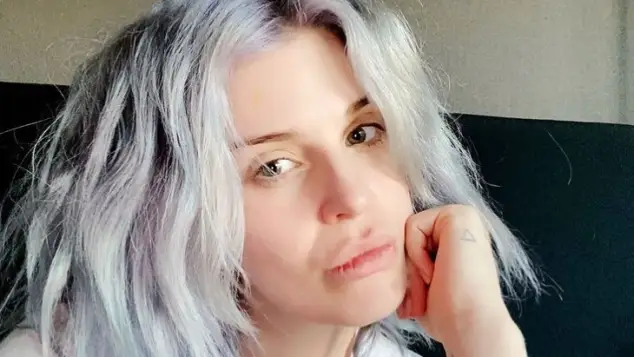Known for her candidness about her struggles with addiction, Kelly has undergone several rehabilitation programs over the years, and her latest reflections provide a deeper understanding of how these experiences have shaped her.
- Kelly Osbourne has fought addiction
- She is opening up on rehab
- It was something that didn't help
Kelly gets sincere
In the new documentary special 'TMZ Investigates Matthew Perry and the Secret Celebrity Drug Ring', the reality star reflects on the failings of the rehabilitation process when it comes to drug addiction. "First rehab I went to was, like, university on how to be a better drug addict," Osbourne says. "I learned so many tricks, so many things I never even thought of from my fellow addicts that were in there."
Kelly said that part of addicts' strategy for obtaining substances during rehab came from leveraging their tenure at the facility — essentially dangling their payment of the treatment centers' fees as a bargaining chip.
"People threatened to leave until they got given what they wanted, whether it be Ambien for sleep, Valium for nerves. They would somehow end up getting it," she says. "They end up giving them whatever it is they've asked for."
In her candid remarks, Kelly shared that her time in rehab taught her not just about sobriety, but also about herself and her patterns of behavior. She described rehab as an intense environment that pushed her to confront the core issues driving her addiction. Instead of viewing rehab solely as a place for detoxification, she emphasized its role as a catalyst for personal growth and self-awareness.
"They'll sit outside AA meetings looking for weak and vulnerable people that they encourage to go and relapse so they can then pick you up again," she says.
Hearing that claim, TMZ founder and host Harvey Levin incredulously replies, "Rehab centers will send people to AA meetings so that they can entice them to do drugs again so they can go back into rehab? That's hard to believe."
Osbourne insists, "I swear on everything that that is true. And it's heartbreaking."
Kelly’s journey has been fraught with challenges, but she articulated that the process helped her develop a healthier relationship with herself. She spoke about how the structured environment of rehab forced her to face uncomfortable truths and let go of old habits that were detrimental to her well-being.
She also expresses extreme disapproval of ketamine treatment for addiction, which the late Matthew Perry received during the last chapter of his life. "It's insane what has happened with this ketamine treatment," Osbourne says. "I am so, so, so against it. If you are an addict, that sort of treatment does not work for you. It is not a quick fix. It's not going to take you to the gates of hell and make you see yourself and come back to Earth as a newborn person."
A Complex Relationship with Addiction
One of the more surprising aspects of Kelly’s perspective is her acknowledgment of addiction as a complex and multifaceted issue. Rather than painting it simply as a battle between good and evil, she recognizes it as a part of her life that requires ongoing management and understanding.
This nuanced viewpoint sheds light on the reality many people face when dealing with addiction—it's not just about abstaining from substances, but also about finding healthier coping mechanisms and rebuilding one's life.
Kelly expressed that rehab has, in some ways, made her a “better drug addict.” This phrase may sound contradictory at first, but what she means is that the experience equipped her with the tools to navigate her relationship with substances more effectively. She learned to identify triggers and manage cravings, skills that are crucial for maintaining her sobriety.
As Kelly continues her journey, she remains committed to sobriety and self-improvement. She shared that her experiences in rehab have instilled a sense of resilience in her. Rather than viewing her past mistakes with shame, she now sees them as learning opportunities. This mindset has allowed her to embrace her identity beyond addiction and to focus on her personal and professional goals.
In her public appearances and through social media, Kelly advocates for mental health awareness and the importance of seeking help. She understands that the stigma surrounding addiction can be a barrier for many, and she hopes to use her platform to encourage others to seek support and embrace their journeys, no matter how difficult.
Also interesting:
Kelly Osbourne’s reflections on her rehab experiences offer a poignant reminder of the complexities of addiction and recovery. Her journey highlights the importance of self-discovery, resilience, and the ongoing effort required to manage one’s mental health.
By sharing her story, Kelly not only breaks down the stigma surrounding addiction but also inspires others to find strength in vulnerability and to pursue a healthier, more fulfilling life.






